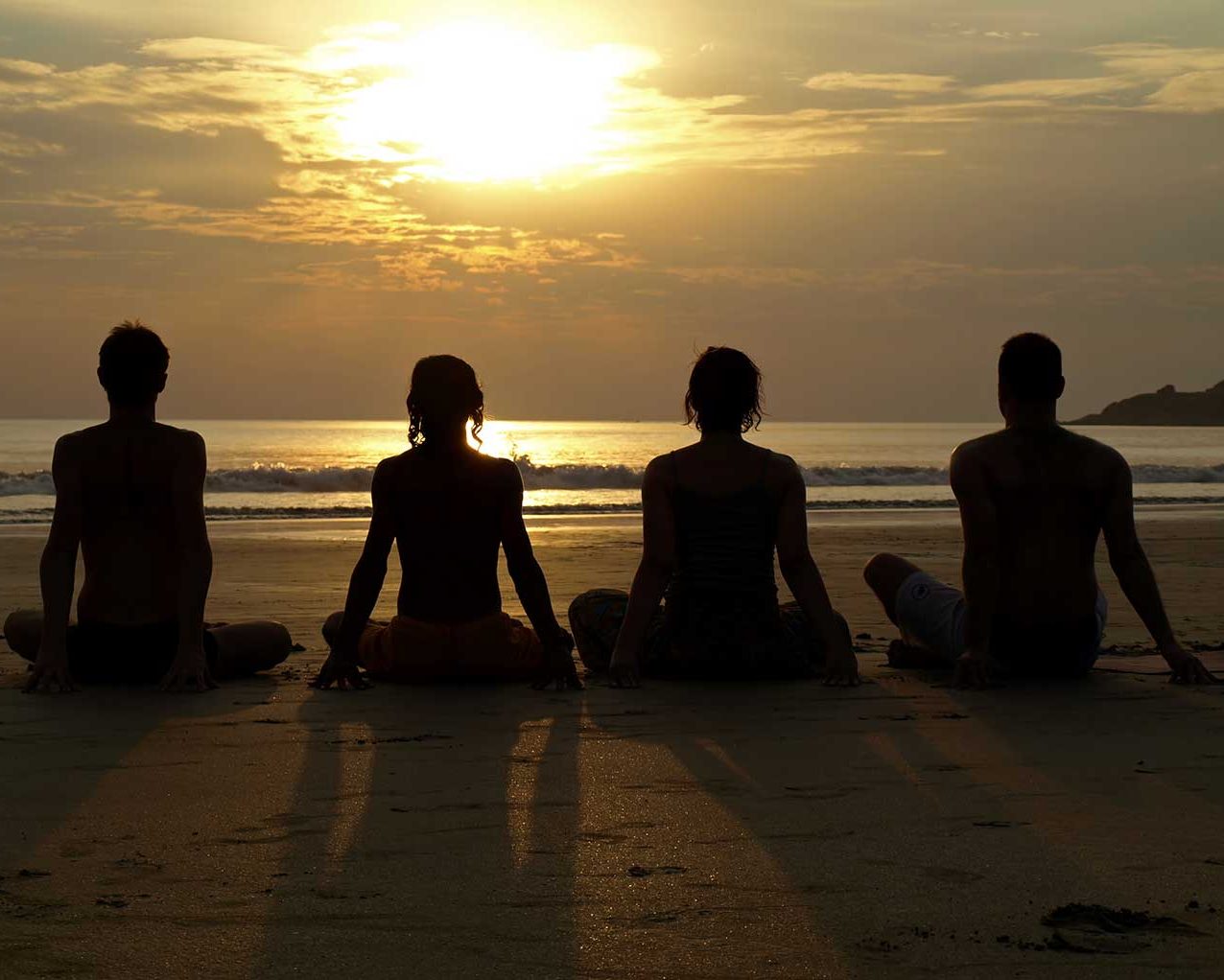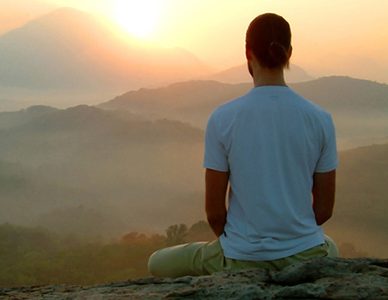What is Mindfulness?
Mindfulness is the practice of paying attention to the present moment in a non-judgmental way. It’s not about eliminating stress or pain but rather about responding to any stimulus in a more balanced, compassionate, and open manner. Practicing mindfulness allows us the freedom to get out of auto-pilot and respond more skillfully to whatever comes our way.
Mindfulness meditation is a path to cultivating peace, well-being, and compassion.
From a personal perspective, I can tell you that mindfulness helps me to relax and find more peace with whatever is happening in my life. It helps me realize when my inner critic is taking over. It allows me to see that much of my life is focused on shoulds, that I have certain ideas that are fixed in my head: I should feel happy, I should be more successful, I should be able to let go of my racing thoughts. Mindfulness practice allows me to see that my thoughts are just thoughts and my emotions are just emotions: they are not necessarily true. The freedom this realization brings is such a gift to me and I would love to share it with you.
Mindful Parenting in a Chaotic World
Check out my new book!What is
mindfulness?
Mindfulness is the practice of paying attention to the present moment in a non-judgmental way. It’s not about eliminating stress or pain but rather about responding to any stimulus in a more balanced, compassionate, and open manner. Practicing mindfulness allows us the freedom to get out of auto-pilot and respond more skillfully to whatever comes our way.
Mindfulness meditation is a path to cultivating peace, well-being, and compassion.
From a personal perspective, I can tell you that mindfulness helps me to relax and find more peace with whatever is happening in my life. It helps me realize when my inner critic is taking over. It allows me to see that much of my life is focused on shoulds, that I have certain ideas that are fixed in my head: I should feel happy, I should be more successful, I should be able to let go of my racing thoughts. Mindfulness practice allows me to see that my thoughts are just thoughts and my emotions are just emotions: they are not necessarily true. The freedom this realization brings is such a gift to me and I would love to share it with you.


Mindfulness Helps Keep Us Healthy
A seminal study found that, after just eight weeks of training, mindfulness meditation boosts the immune system’s ability to fight illness.
Mindfulness Actually Changes Our Brains
Mindfulness practices increase the density of the grey matter in brain regions linked to learning, memory, emotional regulation, and empathy.
Mindfulness Is Good For Our Overall Well-Being
Research demonstrates that mindfulness increases positive emotions while reducing stress and negative emotions.
Mindfulness Improves Memory and Focus
Studies demonstrate the ability of mindfulness to improve attention skills and memory.
Mindfulness Helps Combat Depression and Anxiety
Studies show that mindfulness can be as helpful as antidepressant drugs in treating depression and anxiety.
Mindfulness Helps Parents-to-Be
Studies suggest mindfulness may help reduce pregnancy-related stress and anxiety in expectant parents.
Testimonials
I often get frustrated with either my short attention span or how I easily get distracted but I can now remember to use mindfulness to help coach myself to come back to the present moment and continue on without being so hard on myself.

Brianna H.
Mindfulness has helped me learn about myself: examining how my mind works, helps change ideas/judgments, and helps me be more open to questioning the world and not receiving an answer. It also made me ok with the different states of my mind – sometimes I noticed my mind was heavy/tired, sometimes anxious, flighty and jumping all over the place – what a wonderful realization that this awareness can bring.

Aimee E.
To conclude, I would like to thank you, Nicole, for introducing us to the art of meditation. Meditation and mindfulness has truly taught me to accept everything – religion, myself, other people – willingly.

Jay C.
In the middle of the semester I decided to apply meditation to my everyday life hoping that it would make me feel lighter and less stressed out. I found that it helped m with my anxiety for tests and essays and made me feel easier about my workload. I also found that if I froze up during an exam, all I needed was a few deep breaths and moment of relaxation to get me back on track.

Mona L.
I see [meditation] as a chance to unwind and not worry about thinking about anything. In everyday life, I find myself worrying far too much about everything. My head spins, just thinking about everything: I worry about every assignment in every class, working out when I get home, and dreading traffic, all at once. By sitting in a chair with a dignified posture and a positive attitude, I can let all those stressors go. I have even gone as far as to start meditating before I go to sleep every night.

Megan B.
Through meditation, I have learned to engage in new thinking. This is because I have learned to disengage myself from negative thinking. I wouldn’t say that I don’t have negative thoughts anymore, but I have learned to control them and set them aside from my consciousness. The meditation we do allows me to bring my attention back to the present moment. I appreciate it because it allows me to just focus on what is happening, instead of what I have to get done. In a way, it slows down time to allow me to focus on what is important.

Hajar N.
I was not the most approachable person, but I have since learned to manage my stress instead of letting it build up. As a result, I have become more relaxed and less concerned with the little troubles that I run in to. This week specifically, my mom accidentally dropped her coffee on to me, and when I shrugged it off instead of losing my mind, she had the most confused look on her face. I really enjoy that the mindfulness can now come to me as instinct and I can better react to situations.

Sam O.
About Nicole
Dr. Nicole Libin is a certified mindfulness educator, adjunct professor, and author. She has designed and facilitated mindfulness curricula and other courses for Mindful Schools, Mount Royal University, and numerous private organizations. She co-created the Mindful Schools’ Mindful Teacher Certification program and has been its Lead Teacher for the past two years, training and certifying the next generation of mindful educators. Nicole has experience working with adults, adolescents and children; prenatal groups; sports camps; government agencies; university faculty and students, professionals, and anyone else who will let her stop and take a breath with them.
Nicole is the author of three books on mindfulness. Her children’s book Sticky Brains, a mindfulness and brain science picture book for children will be published in early 2020. Her other two books, Mindful Parenting in a Chaotic World and 5-Minute Mindfulness Meditations for Teens are both published by Rockridge Press and available on Amazon.
Nicole encourages students to find what works for them, recognizing that one path does not fit everyone. She focuses on inspiring students to trust their own wisdom and find stillness in their bodies, hearts, and minds.


